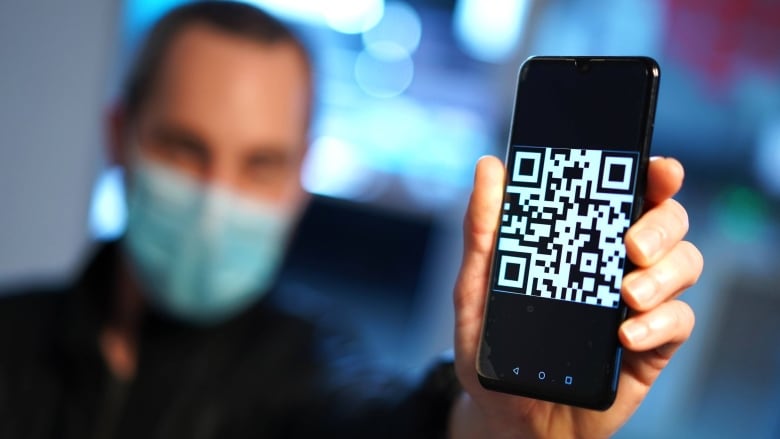With caution and hope, businesses prepare for B.C.'s vaccine card rollout
The vaccine card orders go into effect Sept. 13

Businesses are preparing to adjust to another new normal as B.C.'s vaccine card comes into effect Sept. 13.
The B.C. vaccine card is a digital or printed document that people will need to access non-essential businesses, services and activities, such as restaurants, movie theatres and gyms.
From Sept. 13 until Oct. 24, partially and fully vaccinated people will be able to enter these settings and events.
From Oct. 24, people will need to be fully vaccinated with two doses at least seven days before access will be granted.
Sara Hodson, CEO of Live Well Exercise Clinic and president of the Fitness Industry Council of Canada, says the fitness industry is prepared and getting their systems ready.
She says the card represents a glimmer of hope for her hard-hit industry.
"We are in a situation where a third of fitness businesses have unfortunately permanently closed their doors," Hodson said.
"For those [vaccinated] people sitting on the sidelines who have been thinking I'm a little bit too nervous to go to a gym ... we may see those people come back to fitness."
Staffing challenges
The cards will not be required at grocery stores and other retail settings that haven't seen high levels of transmission, according to officials. They also won't be necessary to access health services, enter a place of worship or vote in the upcoming federal election.
Restaurants, pubs, bars and lounges with dine-in services will require proof of vaccination, but food courts, fast food and other more casual dining establishments won't have this requirement.
Brian D'Souza, co-owner of XCCL Hospitality Management which runs the Vancouver pub The Wolf & Hound, says he's worried about what the card's impact will be on his staff.
"The problem is now how do we get the staff to [check the cards] and how do we equip the staff to manage customers who just don't want to do it," D'Souza said.
"That interaction can be pretty uncomfortable for the person who is doing it, especially because people really feel — just talking in general — they don't need to have to do it."

For another restaurant owner, Lara McCormack, who co-owns From Scratch, A Mountain Kitchen in Fairmont Hot Springs, there simply isn't enough staff to take on this extra work.
McCormack says her restaurant is running with half the staff it normally would and with the introduction of the vaccine card, her restaurant will move to take-out only.
"We cannot do what we do well with more of our time being given to checking out all of these cards. And honestly we don't have any systems in place yet to actually do this," McCormack said.
"We don't need anymore stress on our plates right now."
The vaccine card mandate is an enforceable public health order. Depending on the violation, fines — which can be issued by law enforcement — can range from $230 to $575 for individuals and $2,300 for event organizers, or owners or operators of businesses.
Business sense
While hotels are essential services and exempt from the card, some parts of the hotel — like in-hotel dining services — may still require proof of vaccination.
Ingrid Jarrett, president and CEO of the British Columbia Hotel Association, says customers' expectations of more widespread vaccination might sway hotels to ask for proof of vaccination as a business model.
"We're also hearing from guests ... who want to know that everybody they come in touch with within a hotel is vaccinated," Jarrett said.
"We're not mandated to check for proof of vaccinations. We are seeing hotels and resorts as business owners and operators determining that it is in their best interest that they are in fact checking for vaccination, or proof of vaccination."
With files from Brittany Roffel, Radio West, The Early Edition, and On The Coast